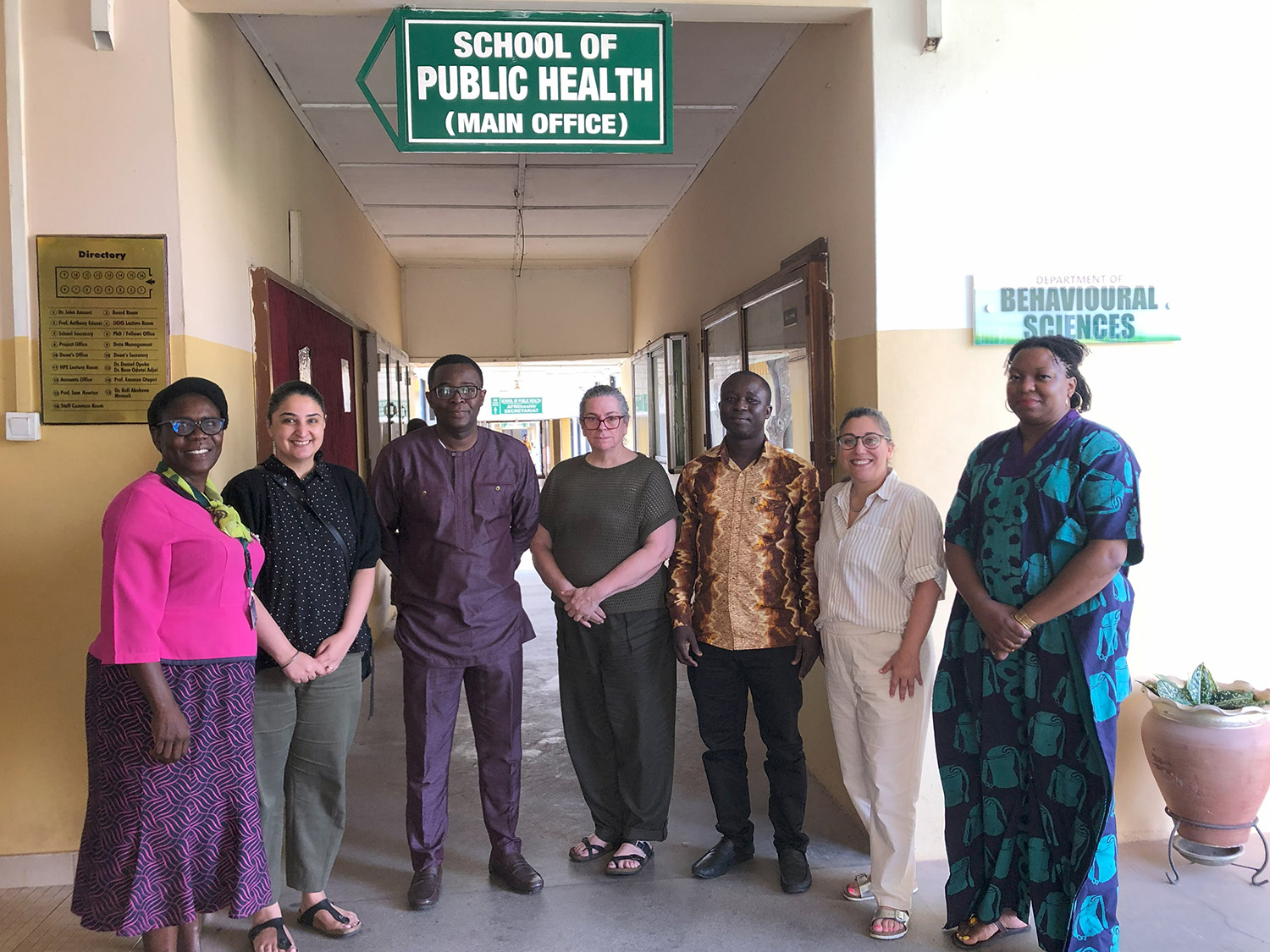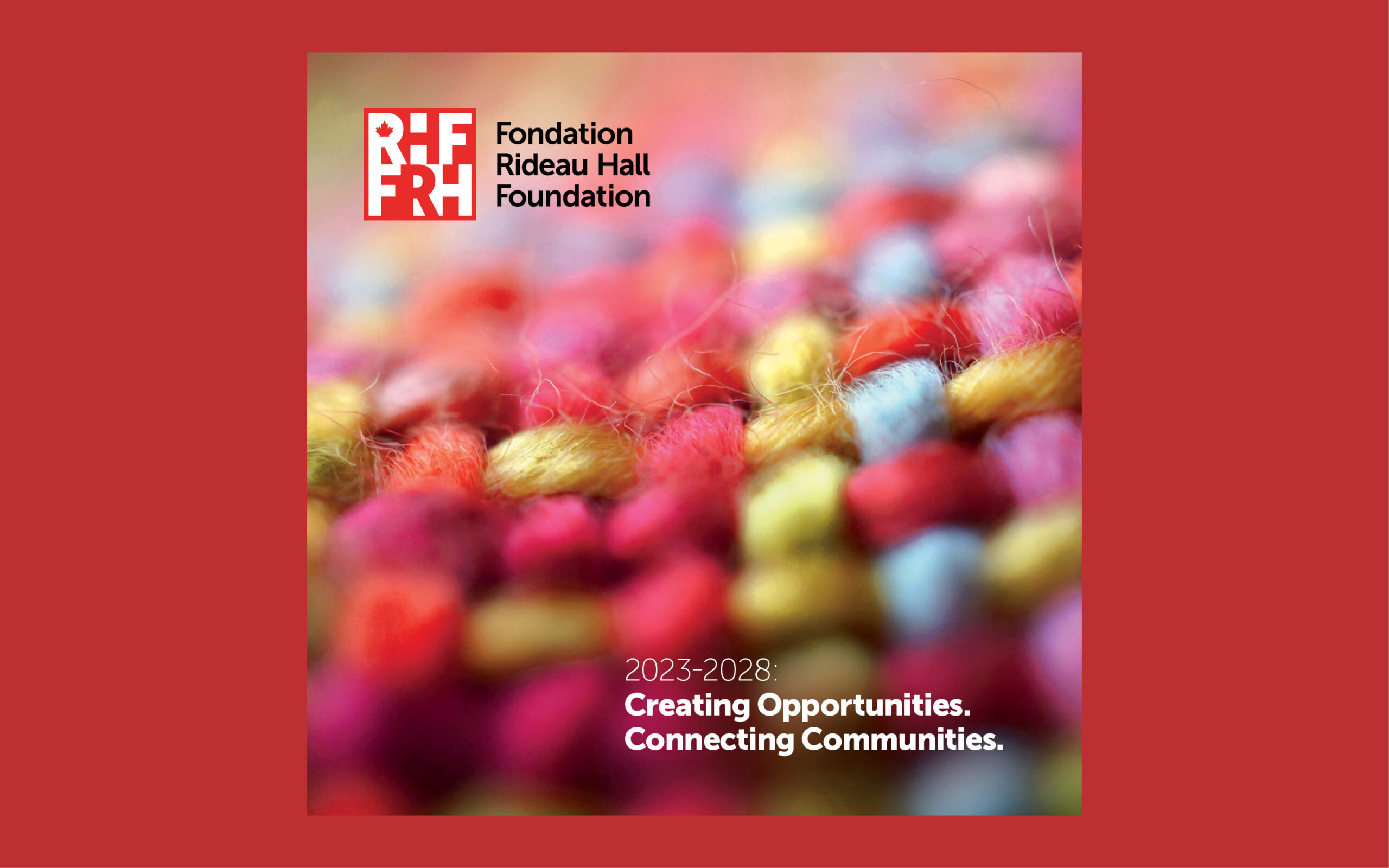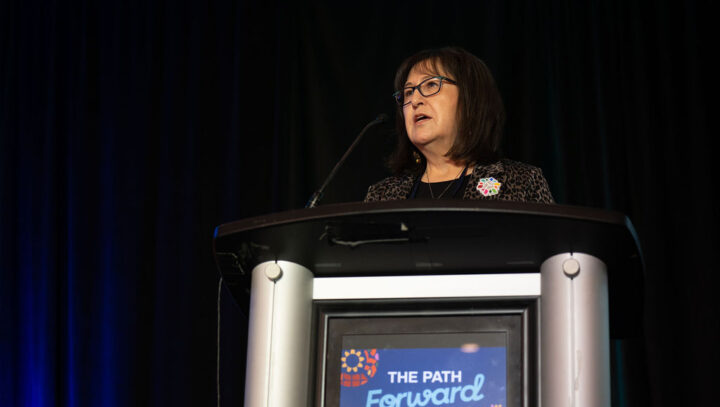By Allison MacLachlan
One of the RHF’s flagship endeavours, the Queen Elizabeth Scholarship (QES) program is Canada’s signature program for global student learning and collaboration, helping to foster the open, connected mindset that is vital to Canada’s economic future. This past July, Simran Singh, the RHF’s Chief Impact Officer, and I had the amazing opportunity to travel to Ghana to experience the QES program first-hand.

Along with our colleagues and partners from Universities Canada, we had the immense pleasure of meeting with over 60 Queen Elizabeth Scholars from both Ghana and Canada, as well as representatives from Ghanaian universities and partner organizations. From climate adaptation and community health and wellbeing to gender equality and disability rights, QE Scholars from Canada and Ghana are working together to tackle some of the world’s most pressing challenges through research, community engagement, and shared learning. This isn’t just international study — it’s global learning with purpose and impact.
While it’s going to take quite a while to fully process all of the incredible stories that were shared with us throughout our time in Accra, Dodowa, Kumasi and Berekuso, three key themes are still very much resonating with me:
- QES opens doors: Time and time again we heard from the early career researchers we met with that their QE Scholarship opened so many doors to other learning opportunities. For some that was the direct result of the work they published as part of their QE Scholarships, while for others it was the prestige of having the QE Scholarship on their CV. Still others talked about the boost being a QE Scholar was to their self-confidence. Regardless of how it was expressed, it’s clear the QES program serves to kickstart learning journeys resulting in more opportunities to learn, explore and grow.
- QES helps build relationships: Key to so many of the QE Scholars’ experiences was the opportunity to build relationships. From peer-to-peer learning and making the most of mentorship opportunities to on the ground field schools and internships with community-based organizations, the QES program helps take learning out of the classroom, the lab and the library to make it real and personal. With 2,600 scholars and 134 international projects across over 80 countries you can only imagine the web of relationships and the work that continues to develop and grow as a result.
- QES is all about the ripple effects: The impact of the QES program goes far beyond what the individual scholars take away from their experiences. Partnerships with NGOs and community organizations lead to a wide variety of community impacts that’s driven by research and on-the-ground collaboration. QES also impacts institutional capacity building, leading to new ways of working, new programs and new areas of expertise. This is an outcome of the QES program that we at the RHF are going to explore more, so stay tuned for a new series of QES impact stories that will feature community programs, field schools and more!

There are so many other learnings to get into: how immersing yourself in another culture and learning environment teaches empathy and understanding; how sharing knowledge and ideas brings so much joy (and leads to so many other ideas and opportunities); how living a shared experience can be transformative; the list goes on and on. They all stem from our very special made-in-Canada QES program. A truly unique program that is shaping a generation of global citizens equipped to tackle complex challenges that require multiple voices and perspectives to find sustainable solutions, together.
Allison MacLachlan is the RHF’s Director of External Relations and Public Engagement. As a communications professional with more than 20 years experience, she is a passionate storyteller who considers optimism to be the most important tool in her arsenal.



